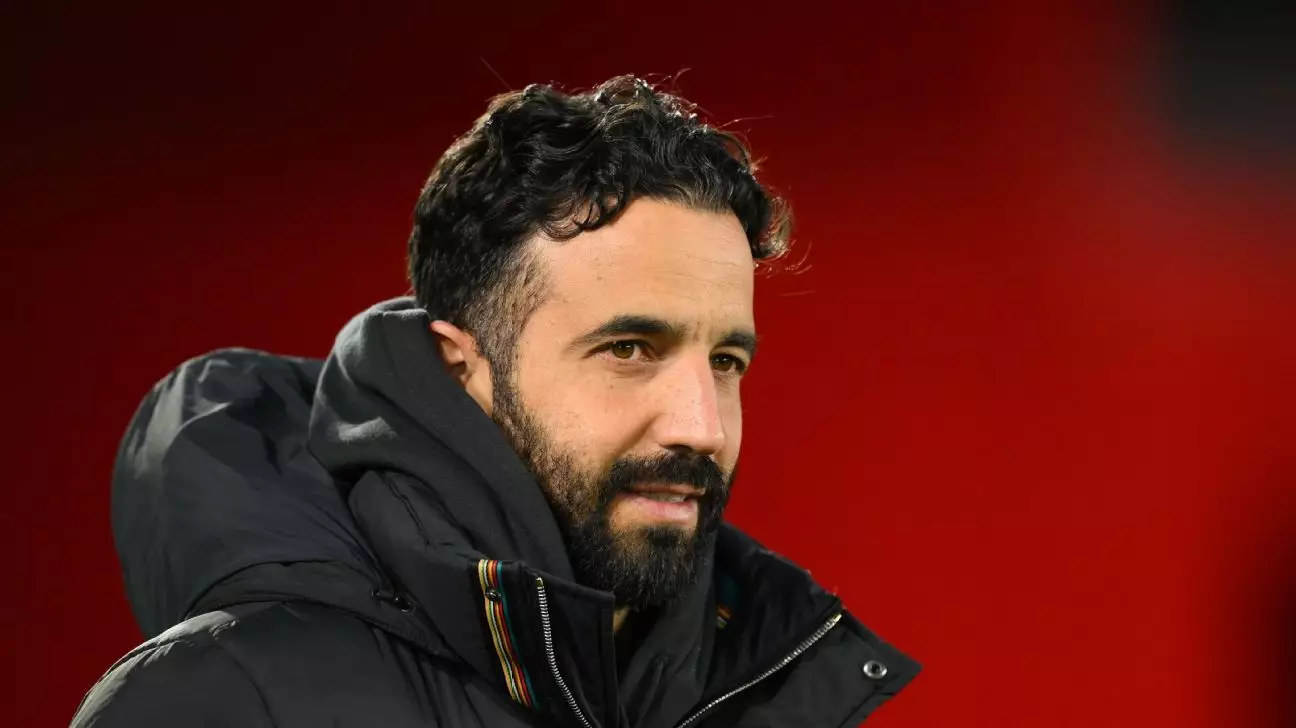Manchester United’s current struggles on the pitch create a stark contrast to the legendary status the club holds within football history. Sitting disappointingly in 13th place, the squad faces the daunting task of confronting their city rivals, Manchester City, with a staggering 36 points separating them from Premier League leaders Liverpool. The stakes are palpable, but Ruben Amorim, the newly appointed manager, is pragmatic about the uphill journey before him. Reflections of Amorim depict a coach grounded in reality; he candidly states, “I am not saying we are going to win the title next year, I am not crazy.” His honest assessment of the situation is a pivotal first step in shaping the narrative around the club’s renaissance.
A Long-Term Vision
Amorim’s leadership philosophy pivots on establishing essential standards throughout the organization—an ambitious endeavor when building a cohesive unit from a disjointed lineup. Accustomed to the high expectations associated with Manchester United, Amorim’s realistic approach underscores the importance of gradual development over immediate triumphs. He articulates a target: the 2027-28 season, pinning hopes on achieving the club’s 20th league title to coincide with its 150th anniversary. While such long-term foresight might seem excessive during rough patches, it allows for strategic planning devoid of panic-driven decisions—a common pitfall for clubs under immediate pressure.
The Portuguese manager does express urgency, indicative of his desire to reinstate Manchester United’s competitive edge. This acknowledgment of a three-year timeline showcases a blend of ambition and patience, two virtues essential for navigating the treacherous waters of modern football. “We are in a rush,” he admits, emphasizing a balance between passion and rationality.
Understanding the Rivals
Amorim’s recognition of the distance between United and the current elite of the league—particularly teams like City, Liverpool, and Arsenal—reveals insight into the broader landscape of English football. The manager’s acknowledgment that they may not be direct contenders in the next couple of seasons demonstrates a strategic mindset that emphasizes internal growth over external expectations. The gravity of the challenge is further amplified by the fact that rival teams are not static; they are continuously evolving and strengthening their squads.
By contrasting aspirations with the grim realities of the Premier League pecking order, Amorim implicitly encourages a shift in expectations from fans and stakeholders. Sporting organizations often suffer from impractical anticipations, which can lead to chaotic administrative decisions that hinder long-term success. Amorim’s focus on gradual improvement prioritizes a foundation, aiming to cultivate a team capable of competing at the highest level in due course.
The Importance of Personnel Decisions
An integral aspect of Amorim’s strategy involves the recruitment of players who align with his vision. Mentioning the need for “one or two big players” hints at a discerning approach to acquisitions. This reveals an awareness that not all big names will have the desired impact and emphasizes the importance of securing players whose attributes fit seamlessly into his system. The mention of Kobbie Mainoo’s pending return after a two-month absence serves as a glimmer of hope for bolstering the squad, while he also recognizes potential injury concerns with Matthijs de Ligt.
In a competitive league replete with financially empowered clubs, attracting high-caliber talent will be a crucial test of Amorim’s vision. His task extends beyond simple recruitment; he needs to forge a team culture that will allow new arrivals to integrate and thrive within the unique framework of Manchester United.
A Focus on Footballing Identity
Ultimately, Amorim’s statements signal a strong inclination towards fostering an authentic footballing identity at Manchester United—one rooted in resilience, preparation, and a collective ambition to return to glory. The integration of a structured approach alongside strategic player acquisition represents a fundamental shift aimed at erasing the narrative of doom that currently envelops the club.
By harnessing the combined strengths and potential of existing players alongside new talent, Amorim is laying down the groundwork for future successes that transcend short-term results. Within an ever-evolving landscape of English football, where overnight transformations are rarely feasible, a steadfast commitment to building for tomorrow may just be what Manchester United needs.

